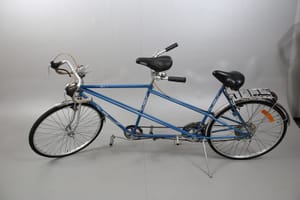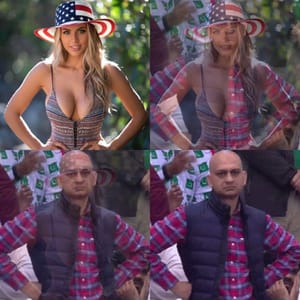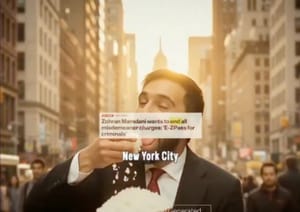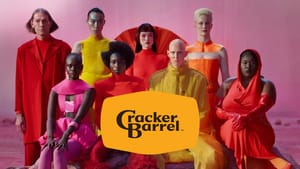When I was diagnosed with endometriosis, it had been a long, painful ride through many years and several countries' medical systems before I finally discovered what was so very wrong with me. I've been hospitalized in New York, taken to one by ambulance in London, been to emergency services in the Netherlands. It was a wild ride. Then, I lucked out with my OB/Gyn in Stockholm, and she discovered the root of all problems in a laparoscopy.
Endometriosis.
Armed with my new knowledge, I thought I could better help myself, but also hoped that I could help others. So I created support groups, engaged myself in associations, and pitched for better information brochures. I spent tonnes of creative time hoping I could "inform", and "raise awareness."
This went on for years, and at some point it took up far too much of my free time, and certainly hindered any creative prospects outside of the topic. As I met with another "endo-sister" one evening, a succesful executive whose shoes, purse, watch and car she drove to the meeting screamed "they pay me well", I realized that being all about my illness was preventing me from being me. Not only that, it was hampering my career, because I brought it up a lot.
"We are not our diagnosis" she said, "we're us."
That really stuck with me, and I had been fighting, I tried all sorts of treatments, I won't bore you with the details, but I had spent almost a decade trying to fix it and setting up support groups and talking about it, that my knowledge of my diagnosis was now a bigger time-suck than my diagnosis.
This reminded me of a girl that I knew in my class when I was primary school. She was a classic blond with that perfect wave-curl to her hair, big blue eyes, slightly taller than average girls and with a certain elegant ballet way to her outstretched hands. It was only when I was face to face with her the first time, that I realized that she was blind.
She was going to class with the rest of us, walking from our room out to breaks, and to lunch, and always with a couple of butterfly girlfriends hovering around her at every break.
In the morning, when us children would all be riding our bikes to school, I'd often end up riding in the same route at the same time as her. You see, she biked to school too, on a tandem bike. And she was the one in the front bike.
This was phenomally impressive to me, and I was slightly obsessed with the tandem bike itself. I had never been on one, and it looked like so much fun. I wanted to borrow it and ride and I had no qualms in announcing this to everyone.
Eventually I made friends with her, and she invited me to her house to play. We went to her room, and I commented on how lovely it was with all the baby blue and nice matching curtains. "Blue is my favorite color", she said, matter of factly. "But, how do you even know?" I asked, because kids don't care, they just ask. "I know that it's a cool, and calming color, and on the blue scale of things, then after that there's purple." she explained "I can see light and dark, I just can't see."
Fascinated I couldn't stop asking things; "You can see light and dark?"
"Yes, like, there are orange or red blobs, or dark spots, and then lighter areas. What do you see when you close your eyes? Maybe it's like that?" she concluded. My mind sufficently blown, she then asked me to come with her to school. This meant that I was allowed to come on the tandem bicycle.
When I arrived that morning, it was incredibly foggy. A proper white fog. The kind people call "pea soup". So as we rode, and we would hear other people on bikes nearby we'd yell their names to check if it was any of our friends. "Is that you, Ylvali?" "Yes!" "I hear some rusty chain that sounds like it needs oiling, that has to be Liselotte on her DBS bike!" muffled giggles in reply.
We took our shortcut, the same one that I took every day, across the gravel football field. Except today was so foggy, and I was on a tandembike, and she was in front of me in control. Which was just as well, really, since I couldn't see, but I could hear as Johan from the street on the left rode up with his BMX bike because he had to peddle much harder than anyone else and it made so much noise on the gravel. I'll never forget how it felt, cycling that space at that speed, with the fog surrounding us like a wall of white.
Fifteen plus years later, I was reading a local-ish magazine of some sort. A black and white photo of a thirty-something blond with long wavy hair and elegant hands caught my eye. On one hip she had a one year old baby smiling at the camera, at her feet she had a toddler laughing.
The article it turns out, was about how her city, my former home town, had wanted to "handle her children for her", since she was blind. She would not accept this, and showed the social services at every visit that they made to her house, how perfectly capable she was. And with this she had won a case against the city, and was allowed to care for her babies without assistance.
She was certainly not her diagnosis. "Blind" isn't who she is.
While I was initially just excited to see that she was doing well, having cute babies and living in her own house with her husband, she now haunts me every time someone announces a diagnosis.
While I can understand the relief, "I have just learned that I have ADHD, this explains so much regarding the problems I have had..." this moment can not become what defines you.
What defined my friend was that she always knew what she was doing, and was in control. Not her blindness.
What I've learned on this journey of both life and career, isn't just that "we are not our diagnosis", but how you react to having one will change everything.
If you let your diagnosis define you forever, then you are forever stuck.
A diagnosis is a tool, not a badge. The minute you let a disorder define you, is the minute you lose yourself and all your potential.




